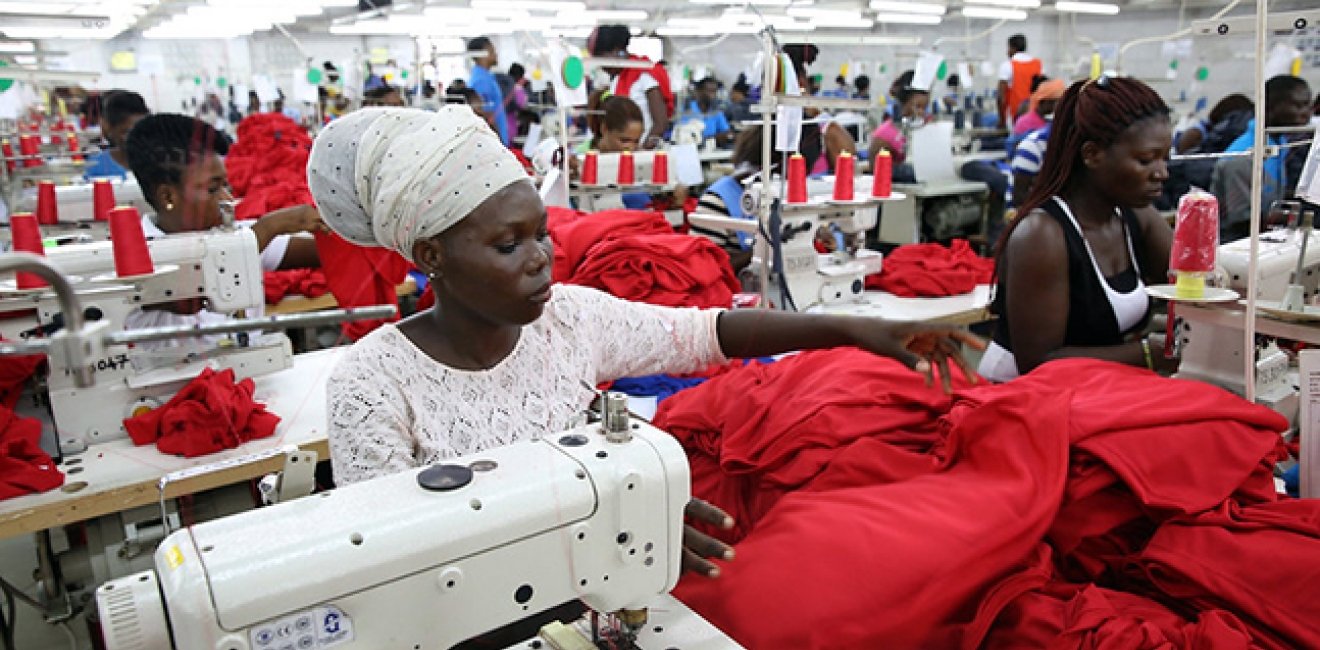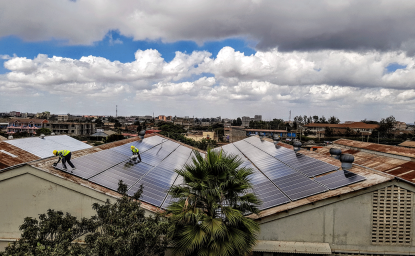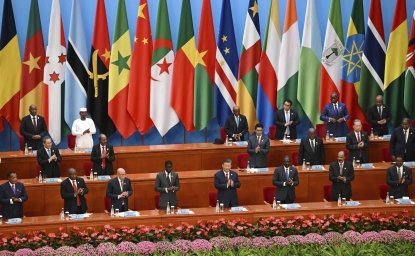
A blog of the Africa Program
What are the perceptions of African workers in Chinese firms? How do these perceptions relate to media criticism of Chinese labor practices and the spirited defense of African leadership and Chinese investors against such criticism? For employees that extol Chinese employment, is their position informed by genuine satisfaction, or is it a case of 'either this or nothing'? These questions inspired me to interview a group of workers in a Chinese-owned retail firm in Kamwala Market in Lusaka — Zambia's capital city. I also interviewed representatives of workers in a Chinese-run ceramics plant in Kenya. I will test my findings against a 2011 Human Rights Watch (HRW) report about China's labor practices in Zambia.
The HRW report focused on China's Nonferrous Mining Corporation (CNMC), a state-owned enterprise operating in Zambia's mining sector. The rationale was that few studies have "…systematically examined what Chinese investment means in human rights terms, particularly for Africans employed by China's state-owned companies." The report concluded that, while Zambians are generally grateful for Chinese investment and its attendant employment opportunities, Chinese employment is riddled with a raft of infractions that do not meet Zambian and international labor standards. Respondents bemoaned inadequate ventilation (which causes lung problems), excessive working hours, management's refusal to replace worn-out safety gear, and threats of dismissal for reluctance to work in conditions deemed unsafe. Deborah Brautigam mounted a rebuttal to the HRW Report, citing how non-Chinese employers like the Konkola Copper Mine (KCM) have equally been culpable in their labor practices. She noted how CNMC has done some commendable work, like not retrenching its workers during the 2008 global economic crisis and hiring a number of workers that had been discharged from other mines.
This current piece differs from the HRW Report and Brautigam's review in three respects; it is based on research conducted in a retail clothing shop and a ceramics firm rather than in a mining firm. Second, it generated data from two countries — Zambia and Kenya. Third, the two firms under discussion are not state-owned. At first glance, both Zambian and Kenyan workers applauded employment opportunities provided by their Chinese employers. This dovetailed with the HRW Report. The Kenyan workers enjoyed amenities such as bonuses, safe living quarters, and recreational facilities that included karaoke, a pool table, gym, and a cultural center. Zambian participants did not have such facilities because they do not reside in their workplace. They noted, though, that with the Patriotic Front's (PF's) accession to power in 2011, their employer increased their salaries and was more open to negotiating working hours and days.
Upon further investigation, the Kenya respondents maintained a generous appraisal.[i] The Zambians were ambivalent; while they are happy to be employed, they disclosed that they work under fear, and in a climate where some have suffered physical abuse at the hands of their employer. To support this, in China's Second Continent: How a Million Migrants are Building a New Empire in Africa, Howard French reported having interviewed some Chinese employers who admitted physically attacking their African employees.[ii] A cultural misunderstanding, especially in regards to work on weekends and holidays, was also raised. The Chinese employer vilified his Zambian employees for insisting to reserve the weekends for worship in place of work. He derided this as a lack of priority, especially for the poor. This shows a contemptuous lack of appreciation and understanding of Zambian cultural and societal values. The workers also lamented the increasing number of Chinese entrepreneurs in ventures such as poultry, vegetables, and low-level gambling, critical skills that are lacking in Zambia. They were also concerned about the rising number of Chinese non-state actors coming to Zambia, fearing that this might lead to "dictatorship," by which they meant colonialism.
Several conclusions could be drawn from the HRW Report and the interviews that informed this piece. Arguably, at the national level, the Zambian government has not been as vigilant and impactful as its Kenyan counterpart in demanding labor compliance. Zambia's employment growth and employment levels lag behind Kenya's. Predictably, small-scale traders, the unemployed, and poor in Zambia loathe jostling for economic opportunities with ambitious immigrants of which Chinese form a very visible part. Reports such as the HRW's finds resonance in Zambia. The ceramic company in Kenya is an exemplary firm. Its corporate social responsibility beyond the precincts of the factory is admirable; it provided potable water to surrounding facilities and helped revive a school that had been destroyed by fire.
The Zambian participants had a sense of resignation and trepidation due to the government's failure to provide gainful employment. The economic condition in the country also portends a cheerless future for aspiring workers. From 3.5 percent economic growth in 2017, the 2019 projection stands at 3.1 percent according to the IMF. In his 2020 budget speech, Zambia's Minister of Finance, Bwalya K.E. Ng'andu, projected "…that growth in 2019, initially projected at 4 percent, will slow down to 2 percent compared to 3.7 percent in 2018." This could translate into low absorption of youth into the labor market. To compound it all, some estimates put poverty in Zambia at 64 percent of the population and per capita GDP at USD$1,497, making the country one of the poorest. Thus, Zambians who might get a job, however unideal as it might be, are happy just to have a job.
Anxiety about the increasing number of Chinese nationals cannot be ignored. Indeed violent tension has been rife between Zambians and Chinese immigrants which has occasionally claimed the attention of state actors. The principal responsibility for creating beneficial synergy between Zambians and Chinese immigrants rests with the Zambian government — through job creation or auspicious environments for private sector enterprises, and by regulating the flow and skills quality of Chinese immigration to Zambia. While the Kenyan participants demonstrated some measure of genuine optimism, their Zambian counterparts resigned themselves to having a job at all; theirs is the case of settling for the unideal as the only alternative to destitution.
Emmanuel Matambo was previously a Post-Doctorate Researcher at the University of KwaZulu-Natal in South Africa, he was a Southern Voices Network for Peacebuilding Scholar during the fall 2019 term.
[i] As a caveat, it should be noted that some findings within Kenya suggest that 'acceptance and openness towards Chinese migrants' are a result of alarming poverty levels among Kenyans.
[ii] French, Howard W. China's second continent: How a million migrants are building a new empire in Africa. New York: Alfred A. Knopf, 2014.
Author

Research Director, Centre for Africa-China Studies, University of Johannesburg

Africa Program
The Africa Program works to address the most critical issues facing Africa and US-Africa relations, build mutually beneficial US-Africa relations, and enhance knowledge and understanding about Africa in the United States. The Program achieves its mission through in-depth research and analyses, public discussion, working groups, and briefings that bring together policymakers, practitioners, and subject matter experts to analyze and offer practical options for tackling key challenges in Africa and in US-Africa relations. Read more





